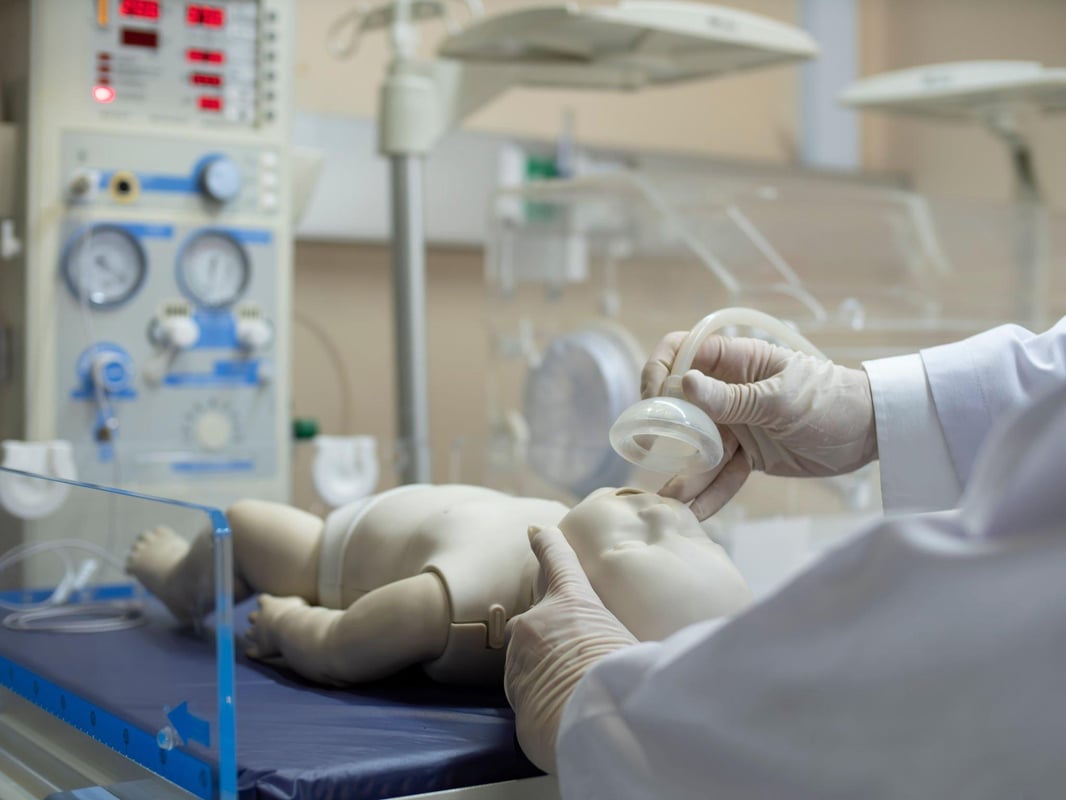
Financial aid (may be available)

Financial aid (may be available)

Financial aid (may be available)

Financial aid (may be available)
$276 total
$2,075 total
$270 total
$410 total
$365 total
$150 total
No cost info
$285 total
$150 total
No cost info
Looking to broaden your career horizons in the healthcare sector? Or maybe you're a current healthcare professional seeking to enhance your skills? Whichever it may be, Pediatric Advanced Life Support (PALS) classes could be the perfect fit for you. In this blog post, we'll explore what PALS is, the training requirements, what to look for in a class, what to expect from day-to-day classes, and the certification process. We'll also advise on how to find related jobs and what other classes someone could take after becoming a PALS-certified professional in Pittsburgh.

Pediatric Advanced Life Support (PALS) is a set of clinical interventions for the urgent treatment of children, infants, and newborns experiencing severe medical emergencies, such as cardiac arrest. Professionals trained in PALS are equipped with the skills to rapidly assess, categorize, and treat pediatric patients in emergency situations.
To undertake PALS training, you must first be a licensed healthcare provider. This typically involves:
Being a Registered Nurse (RN), Licensed Practical Nurse (LPN), or Advanced Practice Registered Nurse (APRN)
Having Basic Life Support (BLS) certification
Having a strong understanding of ECG Rhythm Interpretation, basic pharmacology, and pediatric assessment
When choosing a PALS class, consider the following:
Accreditation: Ensure the course is accredited by recognized bodies, such as the American Heart Association (AHA).
Experienced Instructors: Look for experienced healthcare professionals who can provide real-life examples and scenarios.
Hands-on Training: Realistic simulation training is crucial in learning key PALS techniques.
Flexible Schedule: For working professionals, a course with a flexible schedule could be beneficial.
Day-to-day classes in a PALS course often involve:
Lectures: Lectures cover the theoretical aspects of PALS, such as recognizing and preventing cardiopulmonary arrest in children.
Simulation Training: Hands-on sessions using manikins and other equipment to simulate real-life emergency situations.
Team Dynamics: Learning to work as a part of a team during a pediatric emergency.
The PALS certification process typically involves the following steps:
Course Completion: First, you must complete the PALS course, which includes passing all the assessments.
Written Exam: After course completion, you'll take a written exam covering the theoretical aspects of PALS.
Skills Test: You'll also be assessed on your practical skills in pediatric emergency scenarios.
Certification: Once you pass both the written and practical assessments, you'll receive your PALS certification.
After obtaining your PALS certification, you can search for related jobs in healthcare facilities such as hospitals, clinics, and pediatric emergency centers. You can also explore opportunities in pre-hospital settings such as an EMT.
After becoming a PALS-certified professional, you may want to consider taking additional classes to further enhance your skills. For instance, you could look into becoming a certified medication aide or a psychiatric technician.
PALS certification, like many other professional healthcare certifications, needs to be refreshed every two years. This ensures that you stay up-to-date with the latest developments in pediatric emergency care.
While in-person classes offer hands-on experience, online PALS classes can provide flexibility for those with busy schedules. Both options have their merits, and the choice largely depends on your personal learning style and availability.
PALS certification not only equips you with crucial skills to save lives but also makes you a more desirable candidate in the healthcare job market.
PALS certification can complement other qualifications, such as Advanced Cardiac Life Support (ACLS) or Neonatal Resuscitation Program (NRP), broadening your skillset and increasing your employability.
Taking a PALS class in Pittsburgh can be an enriching and rewarding experience. It not only equips you with the skills to save lives but also opens up new doors in your career. Whether you're a current healthcare professional looking to enhance your skills or a newcomer seeking a fulfilling career path, PALS certification can provide a strong foundation for success in the healthcare industry. Remember, the journey doesn't stop here; there are numerous other courses and certifications that can further expand your expertise and make you an invaluable asset in the healthcare field.
Dreambound has written dozens of in-depth guides on how to get started in this field, with information specific to your city. If you're located somewhere else or thinking about moving, check out some other guides we've written:
If you're exploring various professional paths, Dreambound has in-depth guides to help assist you. Explore a few of these resources below.
Dreambound's platform allows prospective students to find the right educational program for them through searching, filtering, and connecting with our extensive selection of career & technical education partners.
Dreambound has over 70 programs across healthcare, technology, business, and industrial trades. This includes programs such as Medical Billing, Cybersecurity, and welding.
Some of our schools offer financial aid for those who qualify. Many others offer payment plans, where you can pay the cost of class over time.
Yes, Dreambound offers many online programs. On Dreambound's search, you can filter by online, in-person, and hybrid (part online, part in-person).
Dreambound is completely free for you to use! We are supported by schools and organizations who pay to advertise on our website, so we can offer all of our career resources for free.